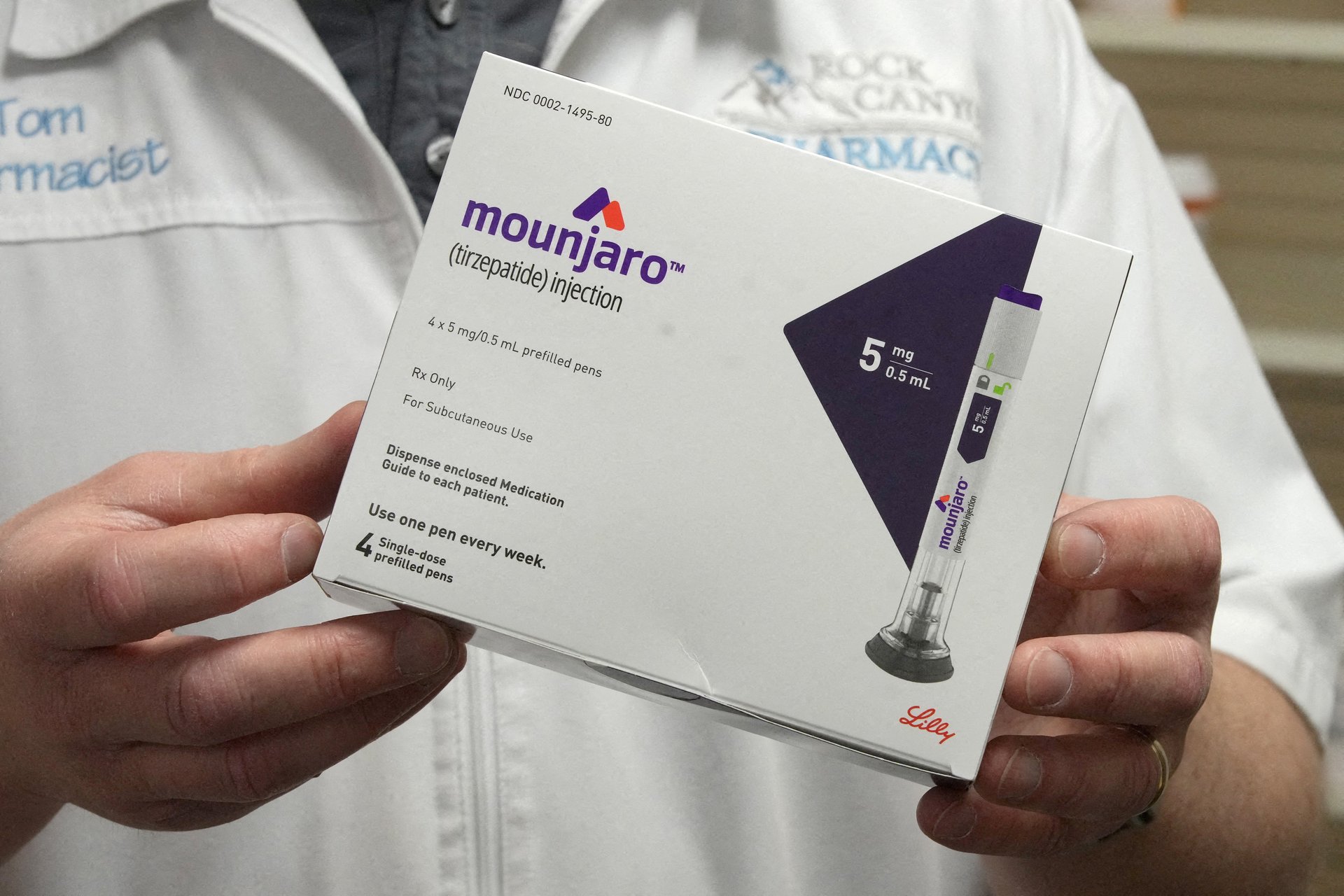Even more doses of Eli Lilly's Zepbound and Mounjaro are officially in a shortage, FDA says
The federal regulator updated its drug shortage database saying that the drugs will now be in limited supply through the end of the second quarter

Eli Lilly, the world’s most valuable pharmaceutical company, can’t keep up with soaring demand of its popular diabetes and weight loss drugs.
Suggested Reading
The U.S. Food and Drug Administration updated its drug shortage database on Wednesday to include most doses of the pharma giant’s Mounjaro and Zepbound. The agency said all doses except for 2.5 milligram injections of each medication will be in limited supply through the second quarter of the year, due to increased demand.
Related Content
Earlier this month, the FDA said only two doses of Zepbound would be in limited supply through the end of April. Some Doses of Mounjaro have been in short supply since February.
Eli Lilly did not immediately respond to a request for comment.
The GLP-1 drug shortage
Both Eli Lilly and its rival Novo Nordisk are struggling to produce enough GLP-1 drugs—the class of medication that Zepbound, Mounjaro, Wegovy and Ozempic belong to—to meet rising demand. GLP-1s are used to treat diabetes and obesity. They have become popular for their appetite suppressing side effects and have been shown to help users lose up 26% of their body weight.
Sykrocketing demand for these medications have transformed Eli Lilly and Novo Nordisk into the most valuable pharmaceutical companies in the world. Eli Lilly, the maker of Zepbound, is the world’s tenth-largest company by market capitalization, at $720 billion.
But high demand for these drugs has also made it hard for some patients to have their prescriptions filled.
Novo Nordisk has been limiting starter doses of Wegovy since last year to ensure there’s enough supply for patients already on the drug. The FDA first declared a shortage of Wegovy in March of 2022. The duration of Wegovy’s shortage is still listed as to be determined.
What Eli Lilly and Novo Nordisk are doing to address the shortage
“I don’t expect that our production will meet demand this year,” the company’s chief financial officer Anat Ashkenazi said at the Cowen Health Care Conference in March. “We’ll be in a very tight supply-demand situation through 2024 and potentially even slightly beyond that.”
Ashkenazi said that construction of a new plant in North Carolina would be completed this year and it could start shipping the medications in 2025. Eli Lilly has invested at least $3 billion in new manufacturing facilities over the past two years.
Ashkenazi added that recently launched single-use vials—as opposed to pre-filled injection pens—helped “provide a little bit of a relief valve” in some markets outside the United States. The company also expects that its upcoming weight loss pill could help it meet demand.
For its part, Novo Nordisk announced in February that it has acquired three facilities from the company’s largest shareholder, Novo Holdings, for $11 billion in an effort to address a shortage of Wegovy. The deal was made in connection with Novo Holdings’ acquisition of the drug manufacturing company Catalent. Novo Nordisk said in a statement that the acquisition will increase the company’s production capacity from 2026 and onwards.
